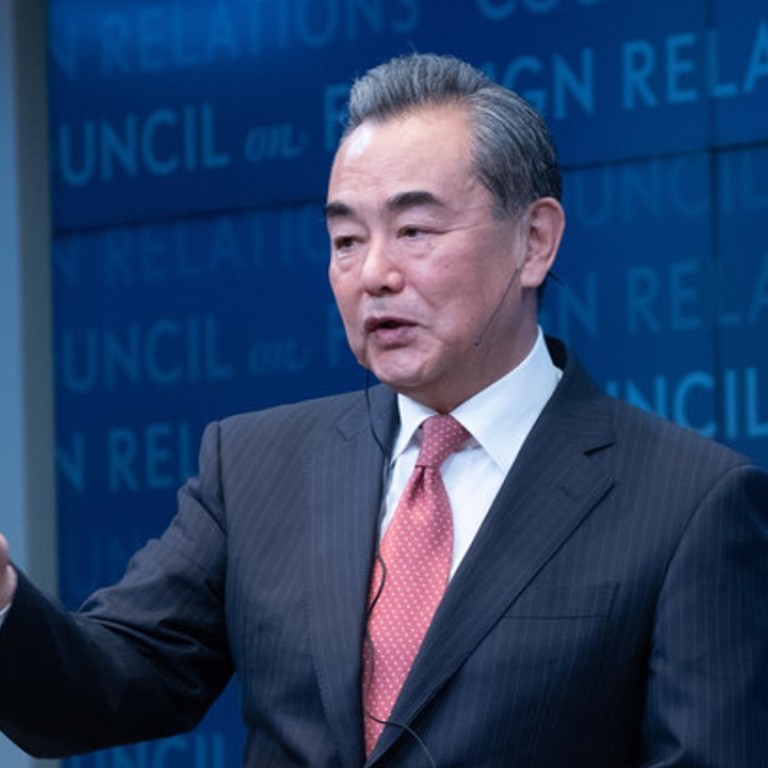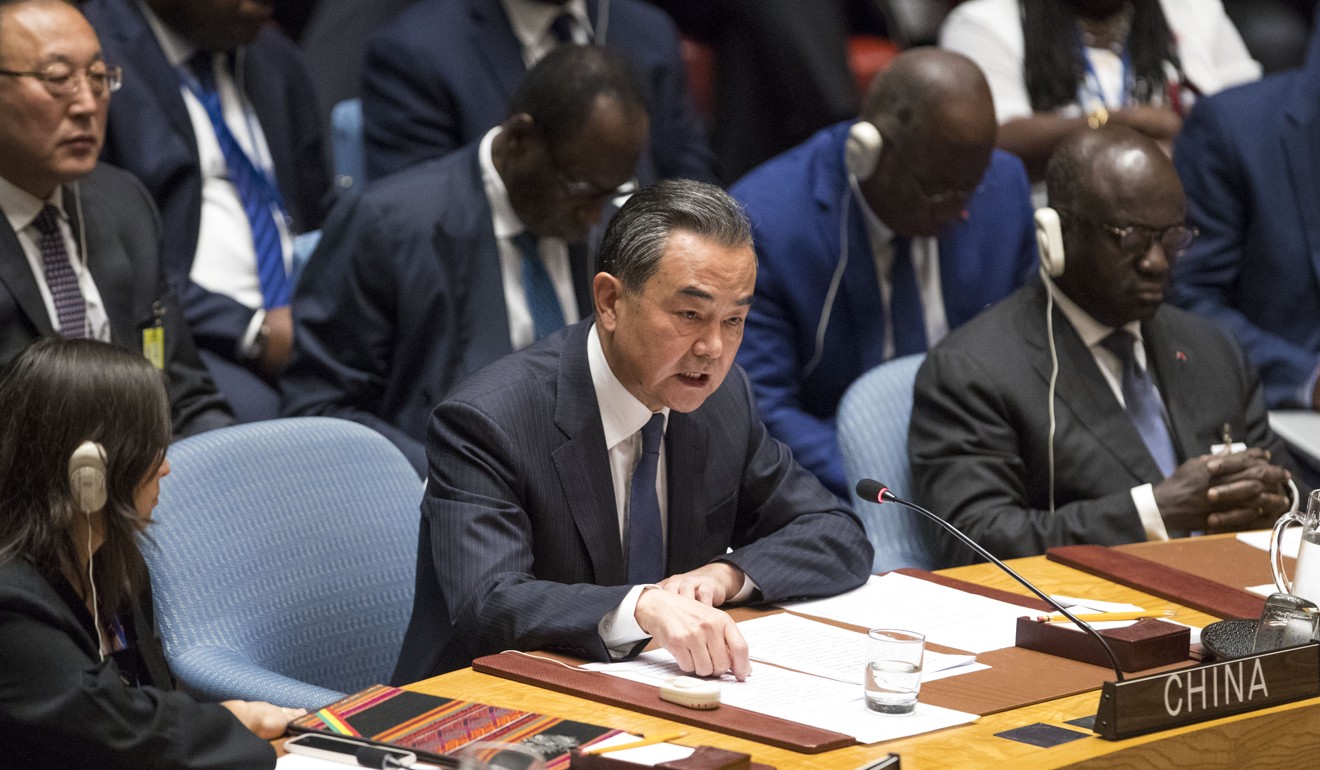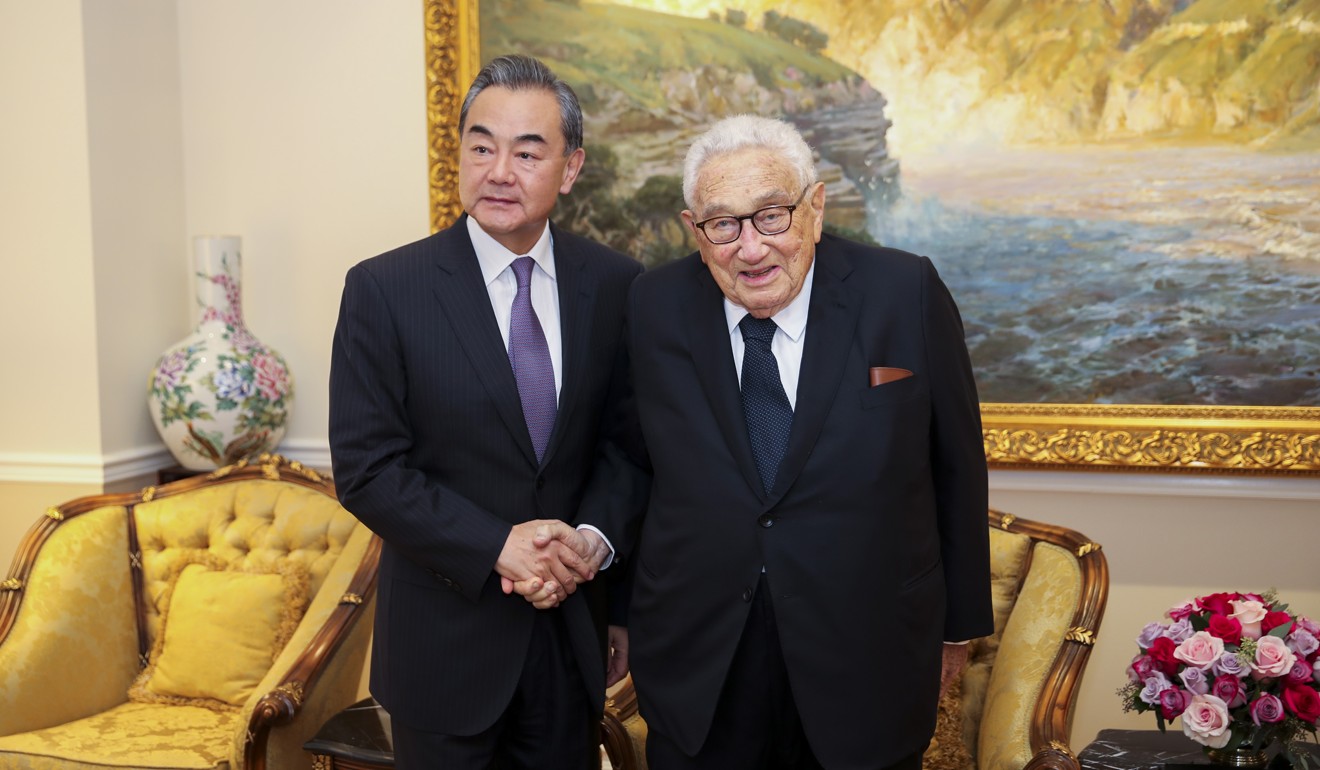
US is making ‘serious strategic misjudgment’ in its accusations against China, Beijing’s top diplomat says
Chinese Foreign Minister Wang Yi tells Council on Foreign Relations that US and China need to salvage their relationship: ‘A glass is easily broken, but difficult to repair’
Beijing’s top diplomat made a strongly worded and wide-ranging defence of China’s model of globalisation on Friday, calling US accusations that China was pursuing global hegemony a “serious strategic misjudgment” and appealing to both sides to salvage the two countries’ precarious relationship.
“A glass is easily broken, but difficult to repair,” Foreign Minister Wang Yi told the Council on Foreign Relations in New York at the end of a week that saw US President Donald Trump significantly ramp up his rhetoric against China.
In a series of appearances at the United Nations, Trump accused Beijing of inflicting “abuse” on US workers who lost their jobs in the years after China joined the World Trade Organisation; threatened to escalate the trade war between the world’s two largest economies; and charged that China was trying to influence the US midterm elections.
Watch: China rebuffs Trump’s claim it is meddling in elections
In his response, Wang said it was natural that tension and suspicion would arise between countries with such different social systems and levels of development.
“What is important is how [those differences] are viewed, evaluated and handled,” he said.
The US contention that China was seeking global hegemony was “self-imagined” and threatened to amplify problems within the relationship between Beijing and Washington, Wang said.
“China will not become, will not challenge, will not take the place of the United States.”
China will not become, will not challenge, will not take the place of the United States
The idea that China wanted to take the United States' leading position in the world was a “serious strategic misjudgment that would bring exceptional harm to the future and the interests of the US”, he said.
China does not wish to establish a new world order, nor could it, he said, adding that “anyone without bias or a hidden agenda would come to a rational conclusion” about whether China’s global ambitions made it a friend or foe.
In a separate meeting with the Council on Foreign Relations, Wang said that hostility against China in the US had been on the rise.
“Many people who are devoted to maintaining and promoting China-US relations have felt the chill on their backs”, he said, adding that both countries should be alert to the changing sentiment.
Wang’s defiant speeches would be unconvincing in the eyes of US policymakers, said Yun Sun, East Asia Programme senior associate at the Washington-based Stimson Centre.
“China cannot definitively prove and defend its benevolent intentions,” she said, adding that China’s mentality of “we are all innocent and all faults are the Americans” would not help to mitigate current tensions.
Wang was trying to put US-China relations back on track at a time when accumulated grievances towards China were erupting, Yun said. It would be wrong to think that such discontent could be “cosmetically pacified and superficially fixed”.
Despite his numerous calls for dialogue and a meeting of minds, Wang’s speech did not suggest that Beijing would compromise on any issues that were causing friction between the US and China.

Instead, said Zhao Ma, an associate professor of modern Chinese history and culture at Washington University in St Louis, Wang was issuing a warning that a downward spiral in US-China relations “could result in a 'protracted war' between two global powerhouses in years to come”.
Moreover, he added, Wang’s review of the numerous clashes between the two nations “shows not only the scope and depth of the US-China frictions but also how fast the bilateral relations have deteriorated under the Trump administration”.
In a speech littered with references to China’s commitment to “peaceful development”, Wang drew attention on Friday to Chinese President Xi Jinping’s “Belt and Road Initiative”, a wide-reaching strategy of state-led investment and infrastructure development in Asia, Africa and beyond.
Other governments have argued that the initiative preys on developing countries with high debt risks and has prompted the US to consider countering by expanding its overseas finance development arm. But Wang called the belt and road plan “the world’s most popular collaborative platform”.
He also sought to present China as a prominent force for peace on the global stage.
Speaking the day after US Secretary of State Mike Pompeo called on UN member nations to push forward with sanctions against North Korea, Wang credited recent progress on the Korean peninsula to China’s involvement in and commitment to the peace-building process.
Wang had told the UN Security Council it should ease punitive measures on North Korea, “given the positive developments”.
Days after US lawmakers convened a hearing to consider policy responses to China’s aggressive crackdown in its far west Xinjiang Uygur autonomous region, which is reported to include the detention and forced re-education of up to 1 million Muslims, Wang said his government’s domestic counter-extremist policies were contributing to world peace.
He cited the absence of terrorist activities in Xinjiang over the past few years as evidence that the government’s security policies were successful, though he did not discuss the nature of the measures being taken.
Watch: Why China is keeping a tight grip on Xinjiang
The 20 million people living in Xinjiang were “exceptionally supportive” of the measures taken by the government, Wang said. “Isn’t that a good thing?”
Those critical of the government’s policies were limited to foreign voices who were “hyping up stories with no base”, he said, calling on other governments to follow China’s example of not interfering in the internal affairs of other countries.
Trump accused Beijing of seeking to influence the coming US midterm elections on Tuesday, during a speech to the UN Security Council.
Though he offered no evidence of state-sponsored election subterfuge, Trump pointed to Chinese state media publishing advertising features in Midwestern US newspapers as evidence that Beijing was “attacking the farm belt [and] our farmers”.
During his week-long visit to New York, Wang has made a number of public appearances in which he has warned that US policies risk undoing decades of constructive relations between Beijing and Washington.
In a Tuesday meeting with former US Secretary of State Henry Kissinger, who led the negotiations in the 1970s during the Nixon administration that paved the way for diplomatic relations between the US and China, Wang accused the US administration of having a “cold war mentality”.

Beijing recently turned down an invitation for high-level trade talks after Washington announced tariffs of 10 per cent on US$200 billion of Chinese imports, to which Beijing responded with 5-10 per cent tariffs on US$60 billion of US imports.
With the trade war’s rapid escalation over the summer, Chinese state media has accused Washington of pursuing a strategy of containing China’s economic and technological rise, the specific goals of which were laid out in depth in Beijing’s “Made in China 2025” plan.
Wang said on Friday that China had no policies that demanded US firms operating in China hand over technology, and welcomed any businesses with concerns over intellectual property to take their grievances to the Chinese courts.
He called for improved dialogue between Washington and Beijing to steer the two superpowers through a difficult time. “History will remember those who lead through the mist,” he said.
Additional reporting by Shi Jiangtao

